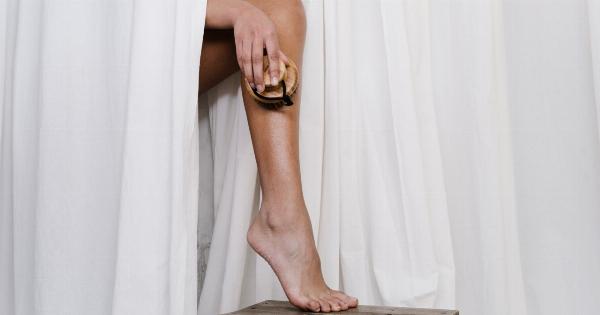Acne is a common skin condition that affects millions of people worldwide. It can be frustrating and embarrassing, especially when it seems like nothing you do is helping to clear up your skin.
While many people are aware of the typical triggers for acne, such as hormonal changes, stress, and poor skincare habits, there are several hidden causes of acne flare-ups that you might be overlooking. In this article, we will explore these lesser-known factors and discuss how they can contribute to acne breakouts.
H2: Diet and Acne
It is well-established that diet plays a significant role in our overall health, but it can also have a direct impact on the condition of our skin.
Certain foods, such as those high in sugar, refined carbohydrates, and unhealthy fats, have been linked to acne breakouts. These foods can increase inflammation in the body and lead to the overproduction of sebum, a type of oil that can clog pores and contribute to acne formation.
By incorporating more whole foods, such as fruits, vegetables, and lean proteins, into your diet, you can help reduce the occurrence of acne flare-ups.
H2: Sleeping Habits and Acne
Did you know that your sleeping habits can affect the health of your skin? Lack of sleep or poor sleep quality can disrupt your body’s natural healing processes, leading to increased inflammation and a compromised immune system.
As a result, your skin’s ability to fight off acne-causing bacteria is compromised, making you more susceptible to breakouts. Establishing a consistent sleep routine and ensuring you get an adequate amount of sleep each night can help improve your skin’s overall health and reduce the frequency of acne flare-ups.
H2: Dirty Makeup Brushes and Acne
If you regularly use makeup brushes, it’s essential to keep them clean. Dirty brushes can harbor bacteria, oil, and dead skin cells, which can transfer onto your face and clog your pores, leading to acne breakouts.
Make it a habit to wash your brushes regularly with mild soap or a brush cleaner to prevent the buildup of dirt and bacteria. Additionally, avoid sharing your brushes with others to minimize the risk of cross-contamination.
H2: Over-washing or Harsh Cleansers
While it’s important to keep your skin clean, over-washing or using harsh cleansers can do more harm than good. Excessive washing can strip your skin of its natural oils, leading to dryness and irritation.
This can trigger an overproduction of sebum as your skin tries to compensate for the loss of moisture, potentially resulting in acne flare-ups. Instead, opt for gentle cleansers specifically formulated for acne-prone skin and avoid scrubbing too vigorously.
H2: Hormonal Birth Control
Hormonal birth control methods can be effective in managing acne for many women. However, for some individuals, certain types of hormonal birth control can actually contribute to breakouts.
This reaction is typically temporary and may subside as your body adjusts to the changes in hormone levels. If you notice an increase in acne after starting a new birth control method, consult with your healthcare provider to explore alternative options.
H2: Stress and Acne
Chronic stress can wreak havoc on your overall health, including your skin. When you experience stress, your body releases stress hormones like cortisol, which can increase inflammation and sebum production.
This can lead to clogged pores and acne breakouts. Finding healthy ways to manage stress, such as practicing relaxation techniques, exercising regularly, and getting enough sleep, can help reduce the impact of stress on your skin and minimize acne flare-ups.
H2: Secreting Habits
Some everyday habits, like frequent touching of the face or resting your chin in your hands, can contribute to acne flare-ups. Our hands come into contact with countless surfaces throughout the day, picking up dirt, bacteria, and other impurities.
When you touch your face, these impurities can transfer onto your skin, leading to clogged pores. Additionally, resting your chin on your hands can introduce more bacteria to the skin, exacerbating acne breakouts. Avoid these habits and make a conscious effort to keep your hands away from your face to minimize the risk of acne breakouts.
H2: Environmental Factors
The environment we live in can also play a role in the development of acne. Pollution, for example, can contribute to oxidative stress on the skin, leading to inflammation and increased sebum production.
Additionally, exposure to ultraviolet (UV) radiation from the sun can worsen acne by thickening the outer layer of the skin and increasing the risk of clogged pores. To mitigate these environmental factors, make sure to protect your skin by using sunscreen and cleansing your face thoroughly after spending time in polluted areas.
H2: Medications
It is important to be aware that certain medications can cause or exacerbate acne as a side effect. These medications typically affect hormone levels and include corticosteroids, anticonvulsants, and certain anti-inflammatory drugs.
If you suspect that a medication you are taking is contributing to your acne breakouts, consult with your healthcare provider to discuss alternative options.
H2: Personal Hygiene and Acne
Your personal hygiene routine can impact the health of your skin. Not showering regularly or allowing sweat and dirt to build up on your skin can lead to clogged pores and acne breakouts.
It is important to cleanse your skin regularly, especially after sweating, to remove impurities and prevent bacterial growth. However, it is equally important not to overdo it as excessive scrubbing or using harsh soaps can irritate the skin and worsen acne. Strike a balance by using gentle cleansers and following a consistent cleansing routine.
H2: Conclusion
While acne can be a stubborn and bothersome condition, it is important to consider all potential causes and triggers.
By addressing these hidden factors that contribute to acne flare-ups, you can take proactive steps towards achieving clearer, healthier skin. Remember to maintain a balanced diet, practice good sleep hygiene, keep your makeup brushes clean, and be mindful of your personal habits and environmental factors.
By addressing these often overlooked factors, you can improve your skin’s overall health and reduce the frequency of acne breakouts.

























